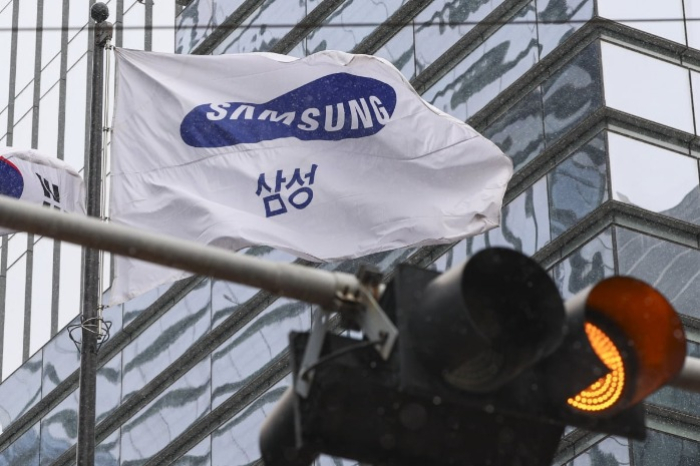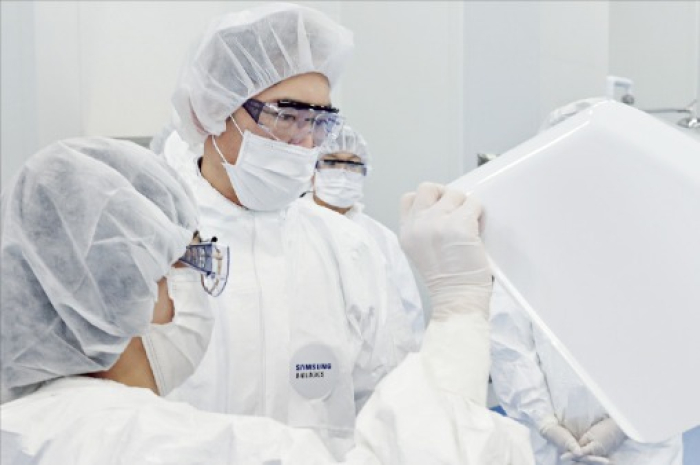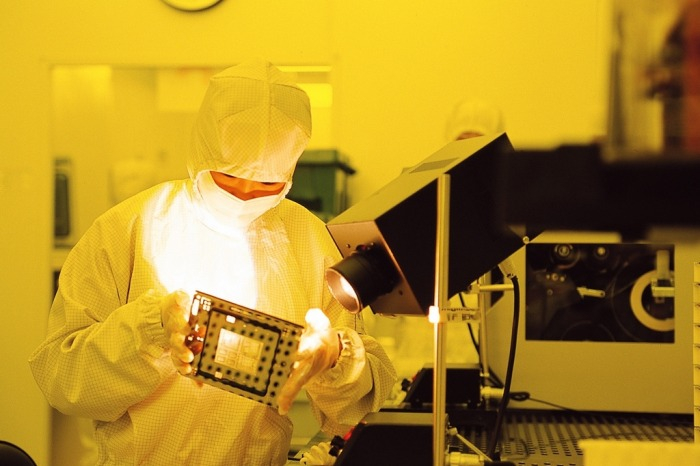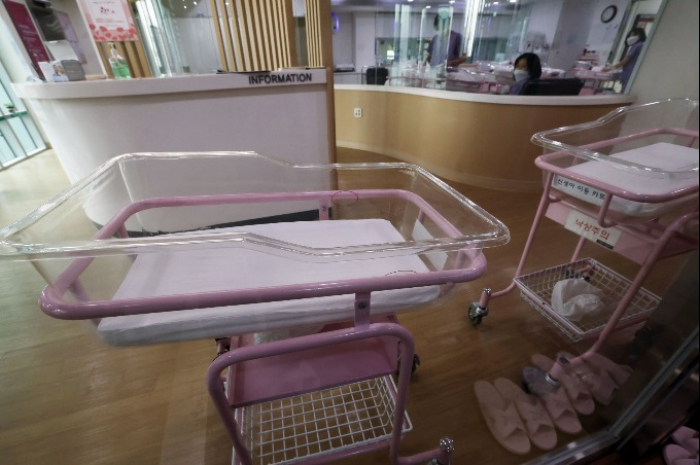Leadership & Management
Samsung lowers bar on hiring foreign talent in South Korea
International students with either undergraduate and graduate degrees from Korean colleges are eligible
By Feb 24, 2025 (Gmt+09:00)
3
Min read
Most Read
LG Chem to sell water filter business to Glenwood PE for $692 million


KT&G eyes overseas M&A after rejecting activist fund's offer


Mirae Asset to be named Korea Post’s core real estate fund operator


StockX in merger talks with Naver’s online reseller Kream


Meritz backs half of ex-manager’s $210 mn hedge fund



South Korea’s biggest business group Samsung has sweetened the pot to win the technology talent war by lowering the bar for new hires of foreign students with Korean college diplomas.
Samsung Group companies on Monday officially kicked off a process to hire new employees for the first half of the year among foreign students graduating from Korean universities with majors in science, technology, engineering and mathematics.
The group’s companies have hired foreign talent already in Korea and capable of being research and development professionals every half year since 2023.
This is separate from the group’s global talent hunt in foreign countries.
The most significant change this year is that applicants' work experience can now be substituted by a master's or doctoral degree.
Previously, only those with two years of real-life work experience in related fields after graduating from university in Korea were given a chance.

But this year, Samsung companies will also allow international students with Korean university diplomas to apply for any available jobs if they have pursued master's or doctoral degrees in the country instead of working.
MORE SAMSUNG FIRMS WILL HIRE FOREIGN STUDENTS
The number of Samsung companies hiring foreign students has also increased from three to 10.
In the past two years, the world’s largest memory chip producer Samsung Electronics Co., global leading display maker Samsung Display Co. and major battery manufacturer Samsung SDI Co. opened their doors to international students in Korea.
Their newly joined siblings include electronic and electrical component maker Samsung Electro-Mechanics Co.; the world’s largest contract drugmaker Samsung Biologics Co.; Samsung’s trading arm Samsung C&T Corp.; and biosimilar developer Samsung Bioepis Co.
Those foreign students hoping to apply for jobs at these Samsung companies, however, must secure Level 3 or higher scores for the Korean language proficiency test TOPIK.
All application processes, including job interviews, will be done in Korean.

GROWTH HINGES ON TECH EXPERTS
Samsung has become more aggressive in recruiting new hires among foreign students in Korea to win a global technology race, in which securing outstanding professionals regardless of nationality is a key winning factor.
The hunt for top tech talent has become more intense and important among companies around the world with the advent of advanced technologies such as artificial intelligence, semiconductors, robotics and quantum computing.
Among Samsung companies newly joining the foreign student hiring process are those in the advanced materials and biotech sectors.
Samsung Electronics Chairman Lee Jae-yong, widely known in international business circles by his English name Jay Y. Lee, has also repeatedly urged group companies to actively bring talented professionals on board regardless of their gender or nationality in recent years.

In Korea where the birth rate is on a steep decline, and the society is already super-aged, securing superior talent before competitors is becoming more important for a company’s sustainable growth, said an official from the business circle.
Asia’s fourth-largest economy reported the world’s lowest total fertility rate of 0.72 in 2023.
Last year, the country’s total fertility rate, which measures the average number of children a woman is expected to give birth to in her lifetime, is estimated to have rebounded a tad bit thanks to a 3% rise in the number of newborns from January 2024 to November 2024.
As Korea has been grappling with a low birth rate for years, the country has already seen a sharp fall in its school-age population, which could lead to a fall in the working-age population in coming years.
Write to Chae-Yeon Kim at why29@hankyung.com
Sookyung Seo edited this article.
More to Read
-
 Bio & PharmaSamsung Biologics wins $668 million CDMO deal with European pharma
Bio & PharmaSamsung Biologics wins $668 million CDMO deal with European pharmaNov 20, 2024 (Gmt+09:00)
4 Min read -
 EconomyS.Korea’s fertility rate hits new world-record low in 2023
EconomyS.Korea’s fertility rate hits new world-record low in 2023Feb 28, 2024 (Gmt+09:00)
4 Min read -
 Korean chipmakersSouth Korea to cut red tape, raise student quota to grow chip talent
Korean chipmakersSouth Korea to cut red tape, raise student quota to grow chip talentJul 19, 2022 (Gmt+09:00)
4 Min read -
 Korean chipmakersSamsung heads to US amid intensifying chip talent war
Korean chipmakersSamsung heads to US amid intensifying chip talent warSep 26, 2022 (Gmt+09:00)
2 Min read -
 The Deep DiveWhy Korean chipmakers struggle with talent shortages
The Deep DiveWhy Korean chipmakers struggle with talent shortagesJun 10, 2022 (Gmt+09:00)
6 Min read
Comment 0
LOG IN


